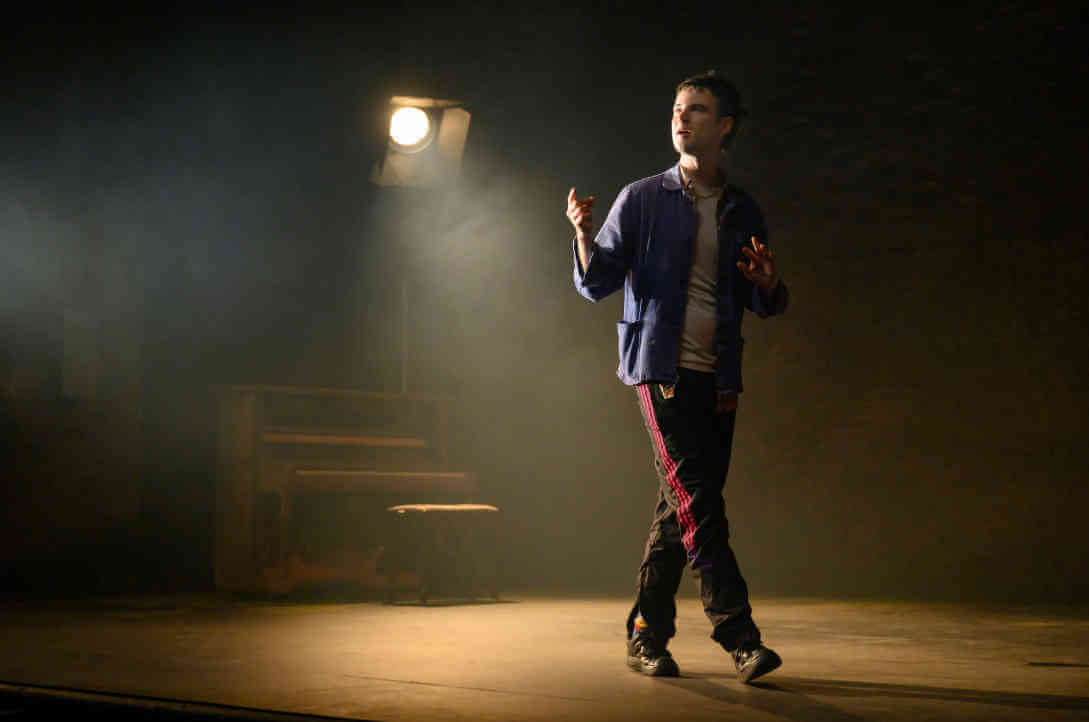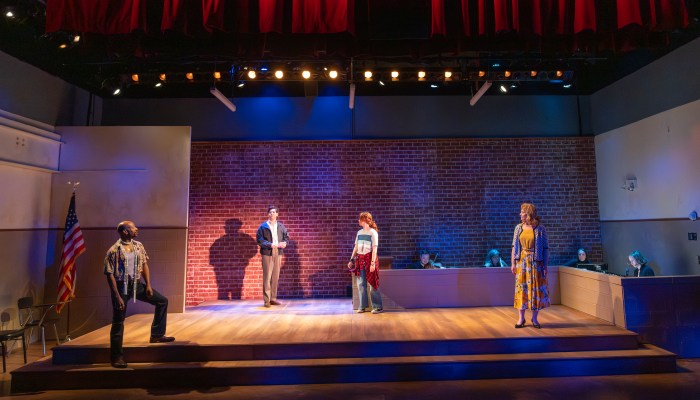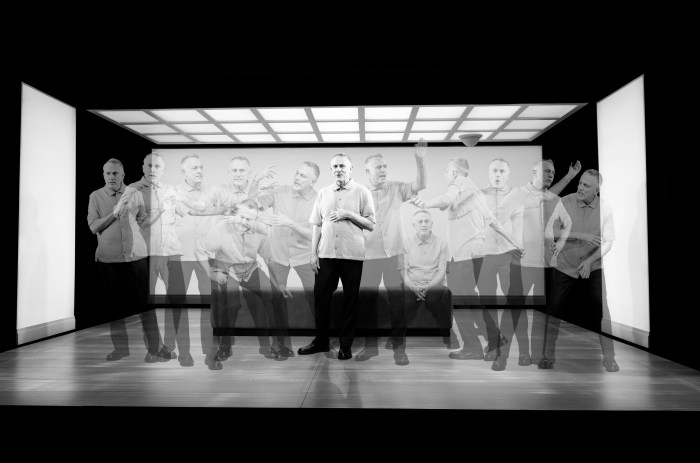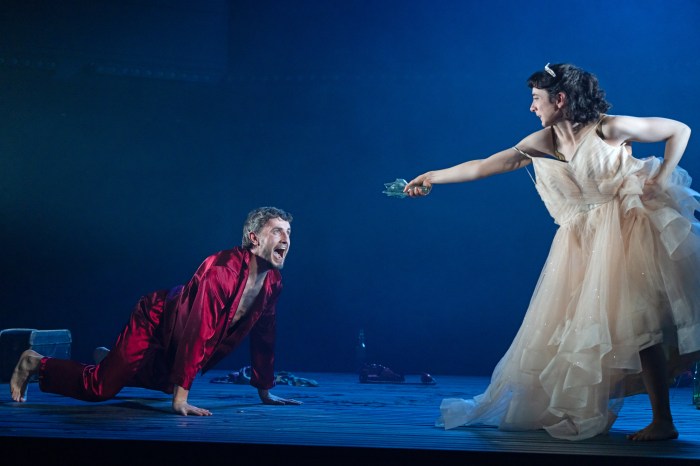Two achingly brilliant monologues, “Sea Wall” and “A Life,” have been paired to deliver a potent evening of drama at the Hudson Theatre on Broadway. The one-acts, directed by Carrie Cracknell, could have been collectively titled “Fatherhood,” as both pieces explore, with acuity and grace, the happiness and heartache that come from being a dad.
Written by Simon Stephens, “Sea Wall” stars British actor Tom Sturridge (“1984” on Broadway) as Alex, a photographer who recounts the extraordinary bonds between himself, his wife Helen, his young daughter Lucy, and his father-in-law Arthur. Alex is “insane with love” for Helen and precious Lucy is his “sweetheart.”
Alex questions if God is real, disagreeing with Arthur, a mathematician, who insists that the existence of Pi proves the existence of God. “It is just so illogical, he told us, that it could ever work, that it must just prove that there’s something more than us.”
Like any gripping tale, details are doled out in bits, and it takes some effort to piece them together.
On holidays they would leave their London home to visit Arthur in the south of France. While on a scuba diving trip, the men explore the Sea Wall, a magical, foreboding underwater cliff that drops down hundreds of feet. Later, however, another craggy wall by the sea plays a sinister role in the story. To reveal any more would spoil the drama.
Sturridge portrays Alex with a marvelous emotional elasticity, conveying the utter delight of being beguiled by his daughter one minute, and barely able to contain his rage the next.
“A Life,” by Nick Payne, is really about multiple lives – the beginning of one life and the end of another. The supremely talented Jake Gyllenhaal is Abe, who contrasts the story of his daughter’s joyous yet difficult birth with that of the sharp decline of his beloved father due to cardiac failure. Many scenarios occur in hospital rooms, with unnerving talks about sonographs and defibrillators.
Abe is flummoxed by the intensive planning required for the birth, and he is scared when his wife inexplicably starts bleeding 10 weeks into the pregnancy. “On the screen, there’s what looks like an X-Ray of a pile of tiny kitten bones,” he says of the image of his unborn daughter.
Both narratives are intertwined, and transitions are abrupt by design. Yet in the confident hands of Gyllenhaal, not only are we able to follow the threads, but he’s also able to mine the text for comic moments that add welcome levity to the profound subject matter.
Cracknell’s careful direction aims to magnify the intimacy – and immediacy – of “Sea Wall/ A Life,” erasing the fourth wall. Each actor addresses the audience directly, and Gyllenhaal, in slapstick mode, even jumps off the stage and clumsily climbs over audience members, offering up the standard “Excuse me…pardon me” niceties.
Laura Jellinek’s bi-level set, which serves both pieces, is vast and spare, featuring a red brick wall, a steep set of stairs, and a piano that Gyllenhaal puts to good use at the climax of the drama (remember, he wowed audiences playing the lead in “Sunday in the Park With George” not long ago). Each character is intentionally dwarfed, underscoring his insignificance in a vast, unruly universe. And by extension, we feel our own meagerness as well.
SEA WALL/ A LIFE | Hudson Theatre, 141 W. 44th St. | Through Sep. 29: Tue. & Thu. at 7 p.m.; Wed., Fri.-Sat. at 8 p.m.; Wed. & Sat. at 2 p.m.; Sun. at 3 p.m. | $59-$315 at seawallalife.com | One hr., 45 mins., with intermission




































